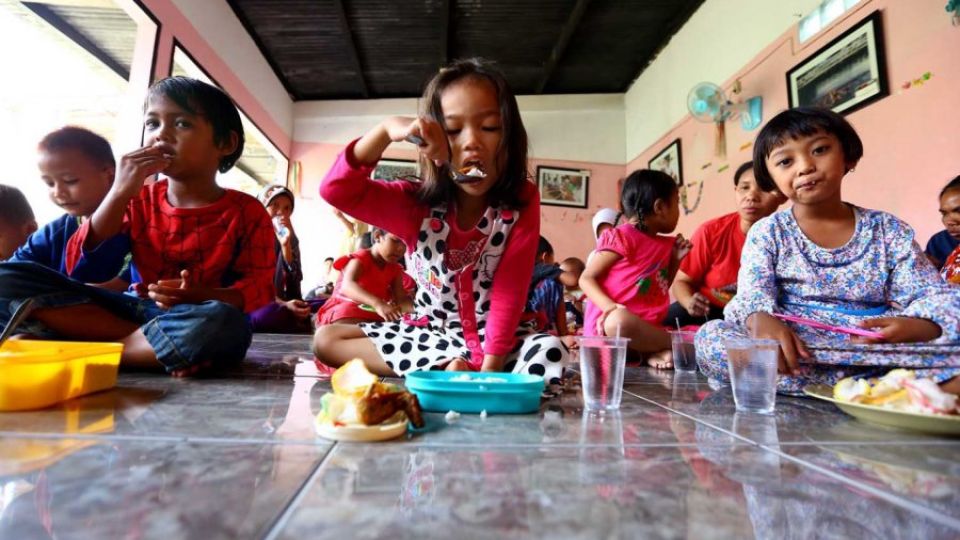January 2, 2025
JAKARTA – Astring of hiccups in the pilot tests of the government’s free nutritious meals program, including alleged fraud, have prompted questions over how the plan will be efficiently implemented nationwide this week.
The free meals program is one of President Prabowo Subianto’s flagship campaign platforms, aiming to feed 82 million children, primary and secondary school students and pregnant women to improve childhood nutrition.
The program is set to be offered to students nationally as early as Jan. 2, National Nutrition Agency (BGN) head Dadan Hindayana told The Jakarta Post on Tuesday.
But the free meals program has seen several obstacles in the trial run, from allegations of illegal levying and fraud to inconsistent menus.
A video clip of a parents’ meeting at an unspecified school posted on Dec. 18 on TikTok by account @ahmad.lehan6 with a caption alleging illegal levying went viral last week.
“The meals are free but you must buy two lunch boxes to eat them, each one costs Rp 30,000 [US$1.86], so buying two means you spend Rp 60,000 per child,” the caption said.
Nutrition agency spokesperson Lalu Muhammad Iwan Mahardan, a police officer with the rank of senior commissioner, was quick to deny the allegation, saying that the program is completely free of charge given that it is a government initiative.
“There is no element of levies in the plan, let alone an obligation to buy lunch boxes,” Lalu said last week, as quoted by Tempo.
Reports emerged last week that dozens of catering businesses in Kediri, East Java had fallen victim to a scam offering them a chance to become vendors for the free meals program in the area.
The perpetrator allegedly asked for a guarantee payment of Rp 1 million for every 1,000 meal boxes a catering service could provide, Antara reported. The perpetrator, who remains at large, reportedly raked in over 70 million rupiah from the fraud.
“We deeply regret the incident,” Lalu said in a statement on Saturday. “The nutritious meals program is a government initiative that is designed to help improve the welfare of the people – and not to be misused by dishonest individuals. We advise the victims to report immediately to the police so the case can be investigated.”
Not ready yet?
Think tank Center of Economic and Law Studies (CELIOS) executive director Bhima Yudhistira attributed the problems surrounding the free meals trial runs to the program’s lack of public engagement and transparency.
“The fraud scheme that hit catering services is one of the consequences of the program’s poor communication. It shows that there are already misunderstandings about how or when the program is run,” Bhima told the Post on Tuesday.
He said the program’s centralized model that gives the government the authority to hire a third-party vendor to provide meals for the schools has caused unnecessary layers of bureaucracy “that could potentially use up the budget for the meals themselves”.
The President announced in late November a significant budget cut per portion, from the initial Rp 15,000 (92 US cents) per serving to Rp 10,000, citing fiscal constraints. It remains unclear whether the cut would affect the Rp 71 trillion the government already set aside for the program’s first-stage implementation this year.
Bhima also suggested that the duration of the pilot tests was too short.
“The program should have been tested for at least two years to find and fix problems, otherwise these flaws could be exploited for corruption or budget abuse,” he said.
A survey released by CELIOS on Monday showed that 46 percent of over 1,800 respondents expressed concerns about the potential of inefficient distribution of the free meals. Another 37 percent of respondents were concerned about the potential of corruption, 14 percent about the lack of nutritional value on the menu and 3 percent about the lack of financing.
Responding to the growing concerns, BGN head Dadan said on Tuesday that “everything is under our control at the nutrition agency”.
For its trial run, the menu consisted of rice and a variation of vegetables, protein sources, fruits and a cup of mineral water.


